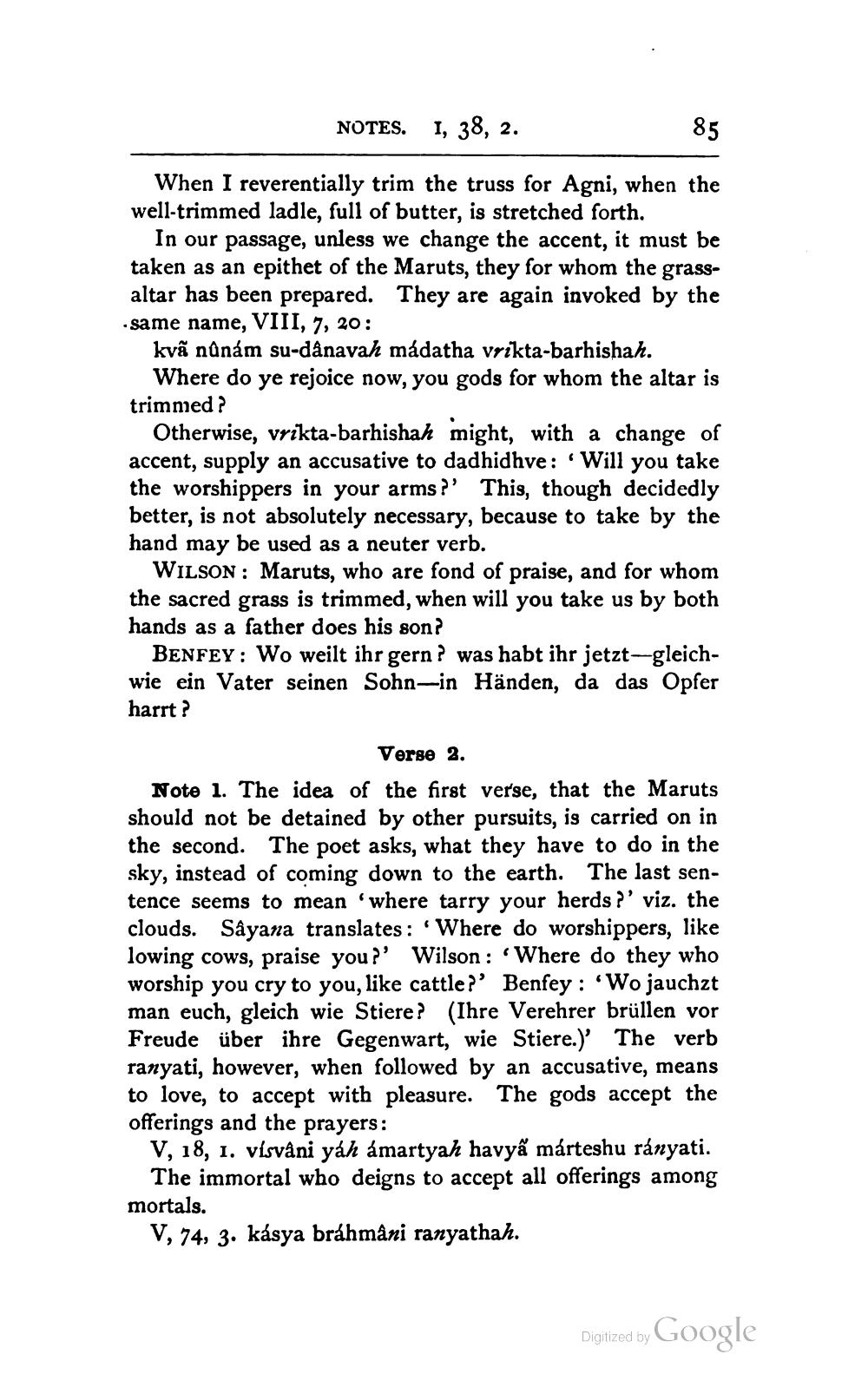________________
NOTES. 1, 38, 2.
When I reverentially trim the truss for Agni, when the well-trimmed ladle, full of butter, is stretched forth.
In our passage, unless we change the accent, it must be taken as an epithet of the Maruts, they for whom the grassaltar has been prepared. They are again invoked by the same name, VIII, 7, 20:
kvã nûnám su-dånavah mádatha vrikta-barhishah.
Where do ye rejoice now, you gods for whom the altar is trimmed?
Otherwise, vrikta-barhishah might, with a change of accent, supply an accusative to dadhidhve: Will you take the worshippers in your arms?' This, though decidedly better, is not absolutely necessary, because to take by the hand may be used as a neuter verb.
WILSON: Maruts, who are fond of praise, and for whom the sacred grass is trimmed, when will you take us by both hands as a father does his son?
BENFEY: Wo weilt ihr gern? was habt ihr jetzt-gleichwie ein Vater seinen Sohn-in Händen, da das Opfer harrt?
Verse 2. Note 1. The idea of the first verse, that the Maruts should not be detained by other pursuits, is carried on in the second. The poet asks, what they have to do in the sky, instead of coming down to the earth. The last sentence seems to mean where tarry your herds ?' viz. the clouds. Sâyana translates: 'Where do worshippers, like lowing cows, praise you?' Wilson : "Where do they who worship you cry to you, like cattle?' Benfey : Wo jauchzt man euch, gleich wie Stiere? (Ihre Verehrer brüllen vor Freude über ihre Gegenwart, wie Stiere.)' The verb ranyati, however, when followed by an accusative, means to love, to accept with pleasure. The gods accept the offerings and the prayers:
V, 18, 1. vísvâni yah Smartyah havyã márteshu rányati.
The immortal who deigns to accept all offerings among mortals.
V, 74, 3. kásya brahmâni ranyathah.
Digitized by
Digized by Google




